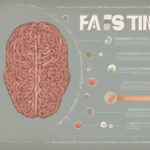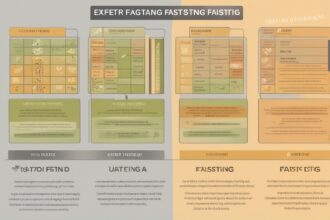Hey there, health enthusiasts! If you’ve been curious about the buzz surrounding prolonged fasting and how it can transform your well-being, you’re in the right place. Prolonged fasting, typically lasting 24 hours or more, isn’t just a trend—it’s a powerful tool backed by science to boost physical and mental health. Whether you’re a seasoned faster or just dipping your toes into this practice, I’m here to break down the benefits, share actionable fasting tips, and guide you through the process with practical advice. Let’s dive into why extended fasting might be the game-changer you’ve been looking for, and how you can make the most of it with simple strategies.
What Is Prolonged Fasting, and Why Does It Matter?
Prolonged fasting refers to abstaining from food for extended periods, generally ranging from 24 hours to several days, often with only water, black coffee, or tea allowed. Unlike shorter intermittent fasting methods (like the 16:8 plan), prolonged fasting pushes your body into deeper metabolic states, such as ketosis, where it burns fat for fuel. This isn’t just about skipping meals—it’s about giving your body a chance to reset and heal. Research suggests that prolonged fasting can trigger autophagy, a cellular cleanup process that removes damaged components and may protect against aging and disease (Levine & Kroemer, 2019). So, why does this matter? Because incorporating fasting tips into your routine could unlock benefits that go way beyond weight loss.
Key Health Benefits of Prolonged Fasting
Let’s get into the meat of why prolonged fasting is worth considering. The benefits are wide-ranging, touching on physical health, mental clarity, and even longevity. Studies have shown that extended fasting can improve insulin sensitivity, which is crucial for managing blood sugar levels and reducing the risk of type 2 diabetes (Patterson & Sears, 2017). It also promotes weight loss by enhancing fat-burning mechanisms and reducing overall calorie intake. But that’s not all—fasting has been linked to reduced inflammation, a key driver of chronic diseases like heart disease and arthritis (Longo & Mattson, 2014). On the mental side, many fasters report sharper focus and improved mood, likely due to increased production of brain-derived neurotrophic factor (BDNF), a protein that supports brain health (Mattson et al., 2018). With the right fasting tips, you can tap into these benefits safely and effectively.
How Prolonged Fasting Impacts Cellular Repair and Longevity
One of the most fascinating aspects of prolonged fasting is its effect on cellular repair. When you fast for an extended period, your body shifts into a state of conservation, prioritizing repair over growth. This is where autophagy comes into play—a process where cells recycle damaged parts and eliminate waste. Research indicates that autophagy, triggered by fasting, may help protect against neurodegenerative diseases like Alzheimer’s and even slow aging (Rubinsztein et al., 2011). Additionally, fasting reduces oxidative stress, which damages cells over time and contributes to aging. By following smart fasting tips for beginners, you can support your body’s natural repair mechanisms and potentially add years to your healthspan. It’s like giving your cells a deep clean—pretty cool, right?
Practical Fasting Tips to Maximize Benefits
Now that we’ve covered the ‘why’ behind prolonged fasting, let’s talk about the ‘how.’ Jumping into an extended fast without preparation can be tough, and even risky, if not done correctly. That’s why I’ve put together some practical fasting tips to help you succeed. These strategies are designed to ease you into the process, keep you safe, and ensure you’re getting the most out of your fast.
- Start Slow: If you’re new to fasting, don’t dive straight into a 72-hour fast. Begin with shorter windows, like a 24-hour fast, and gradually increase the duration as your body adapts.
- Stay Hydrated: Water is your best friend during a prolonged fast. Aim to drink at least 2–3 liters per day to prevent dehydration and support detoxification.
- Listen to Your Body: If you feel dizzy, overly fatigued, or unwell, it’s okay to break your fast. Pushing too hard can do more harm than good.
- Break Your Fast Gently: After a prolonged fast, avoid heavy meals. Start with light, nutrient-dense foods like bone broth or a small portion of vegetables to ease your digestive system back into action.
Common Challenges and How to Overcome Them with Fasting Tips
Let’s be real—prolonged fasting isn’t always a walk in the park. Hunger pangs, irritability, and low energy are common hurdles, especially in the first few days. But don’t worry; with the right fasting tips and tricks, you can navigate these challenges like a pro. For instance, hunger often peaks around the 24–36 hour mark but tends to subside as your body adjusts to burning fat for energy. Staying busy can also help distract you from food cravings. And if you’re worried about nutrient deficiencies during longer fasts, consider consulting a healthcare provider to ensure you’re meeting your needs before and after fasting (Johnstone, 2015). Here are a few more solutions to keep in your back pocket.
- Combat Hunger with Distraction: Engage in light activities like reading or walking to take your mind off food during tough moments.
- Manage Energy Dips: Rest when needed, and avoid intense exercise during prolonged fasts to conserve energy.
- Address Irritability: Practice mindfulness or deep breathing to stay calm—fasting can sometimes mess with your mood.
- Electrolyte Balance: Add a pinch of salt to your water or sip on herbal teas to maintain electrolyte levels, especially during longer fasts.
- Plan Ahead: Schedule your fast during a less stressful time, so you’re not juggling major responsibilities while adjusting to hunger.
Who Should (and Shouldn’t) Try Prolonged Fasting?
Before you jump on the prolonged fasting bandwagon, it’s important to know if it’s right for you. While the benefits are impressive, this practice isn’t for everyone. Prolonged fasting can be incredibly beneficial for healthy adults looking to improve metabolic health or lose weight, but it’s not recommended for certain groups. Pregnant or breastfeeding women, individuals with eating disorders, or those with specific medical conditions like diabetes should avoid extended fasts unless under strict medical supervision (Fung & Moore, 2016). Always consult with a healthcare professional before starting, especially if you’re on medications or have underlying health issues. Safety first, folks! With the right fasting tips for weight loss and personalized guidance, you can decide if prolonged fasting fits into your wellness journey.
So, what’s the takeaway from all this? Prolonged fasting offers a wealth of benefits—from cellular repair and weight loss to mental clarity and reduced inflammation—that can truly transform your health. But it’s not a one-size-fits-all solution. By arming yourself with practical fasting tips, listening to your body, and approaching this practice with intention, you can unlock its full potential. Remember, fasting is a tool, not a punishment. Start small, stay hydrated, and don’t hesitate to seek professional advice if you’re unsure. I’d love to hear about your experiences or any fasting tips for health that have worked for you—drop a comment below and let’s keep this conversation going!
References
- Fung, J., & Moore, J. (2016). The Complete Guide to fasting: Heal Your Body Through Intermittent, Alternate-Day, and extended fasting. Victory Belt Publishing.
- Johnstone, A. (2015). Fasting for weight loss: An effective strategy or latest dieting trend? International Journal of Obesity, 39(5), 727–733. https://doi.org/10.1038/ijo.2014.214
- Levine, B., & Kroemer, G. (2019). Biological functions of autophagy genes: A disease perspective. Cell, 176(1-2), 11–42. https://doi.org/10.1016/j.cell.2018.09.048
- Longo, V. D., & Mattson, M. P. (2014). Fasting: Molecular mechanisms and clinical applications. Cell Metabolism, 19(2), 181–192. https://doi.org/10.1016/j.cmet.2013.12.008
- Mattson, M. P., Moehl, K., Ghena, N., Schmaedick, M., & Cheng, A. (2018). Intermittent metabolic switching, neuroplasticity and brain health. Nature Reviews Neuroscience, 19(2), 63–80. https://doi.org/10.1038/nrn.2017.156
- Patterson, R. E., & Sears, D. D. (2017). Metabolic effects of intermittent fasting. Annual Review of Nutrition, 37, 371–393. https://doi.org/10.1146/annurev-nutr-071816-064634






